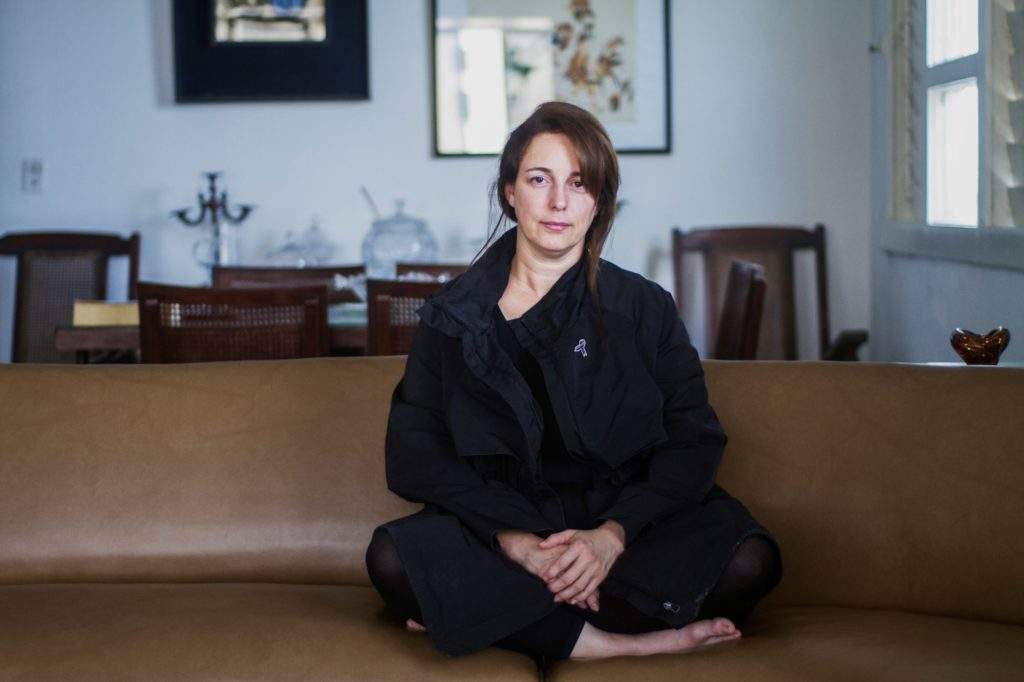Tania Bruguera, one of the world’s leading artists, was detained for several hours yesterday by Cuban police, only to be released. The artist, born in Havana in 1968 and the author of some of the most significant performances in recent years (such as Tatlin’s Whisper #5 at the Tate in 2008: the London museum then held a major retrospective of her work in 2018), had expressed her intention to participate in a demonstration against violence and racism in the Cuban capital: the uprising followed the killing of Hansel Ernesto Hernández Galiano, a black Cuban killed by police on June 26. Bruguera had written a Facebook post at 11 p.m. on June 29 to say that if there was violence at the demonstration, the government would be responsible.
The next morning, around 6 a.m., Tania Bruguera was taken from her home: according to her, law enforcement’s intent was to prevent her from demonstrating. The artist was later released after ten hours of detention. “This violence, daily and arbitrary,” reads the artist’s Facebook page, “has now been assimilated by Cubans, but not by Tania Bruguera nor by the dozens of brave people who took to the streets today, June 30, to demonstrate against the government for the police brutality that took the life of a young man last week.” Also through Facebook, her entourage lets it be known that the entire time she has been held in detention, Tania Bruguera has not spoken: it also appears that, in her cell, the artist has been subjected to psychological violence (one reads that, while in detention, she allegedly listened to people humiliate her by saying that “no one follows her, no one defends her, and she is worth nothing,” and even veiled cross threats: someone, we read, would “mention her sister Deborah and brother-in-law Marcel, remembering that they are in the same place where her mother Argelia recently died in strange circumstances.”)
The sister let it be known that law enforcement officials would detain Tania Bruguera on the pretext that she would contribute to the spread of the Covid-19 contagion. The artist defended herself, again through her staff, by letting it be known that all the peaceful protesters had prepared themselves so as to strictly adhere to the anti-contagious rules: personal hygiene, masks, physical distancing. Tania Bruguera, however, was not the only artist arrested: other artists were also detained or placed under house arrest, including dissident artist Luis Manuel Otero Alcántara, who had already been detained in March. This is also not the first arrest for Bruguera: it had already happened to her in December 2014 and December 2018.
The art world has already expressed firm condemnation of the treatment to which the artist has been subjected. “When an artist who uses her voice to demand justice and social change is arbitrarily arrested on her doorstep,” said Julie Trébault, director of PEN America’s Artists at Risk Connection, a major project supporting artists whose freedom of expression is threatened, “it is obvious that a social injustice has occurred. We demand immediate freedom for Tania Bruguera and an end to the continued harassment and arrests of artists and activists across the country who are only exercising their fundamental right to freedom of expression.”
 |
| Tania Bruguera arrested and later released to prevent her from demonstrating. She allegedly suffered psychological violence |
Warning: the translation into English of the original Italian article was created using automatic tools. We undertake to review all articles, but we do not guarantee the total absence of inaccuracies in the translation due to the program. You can find the original by clicking on the ITA button. If you find any mistake,please contact us.